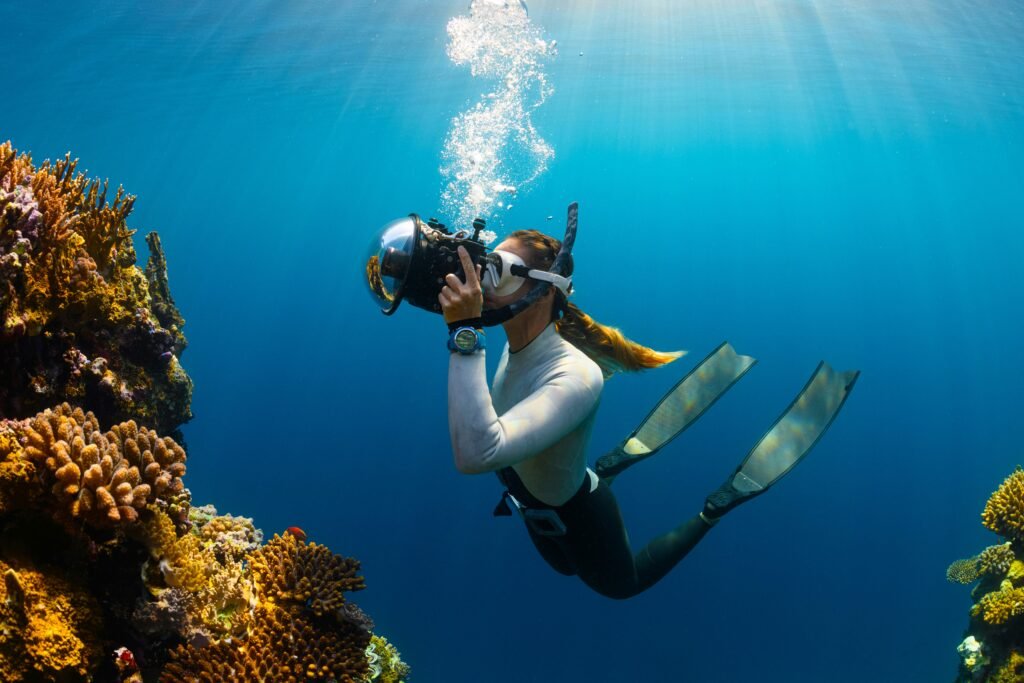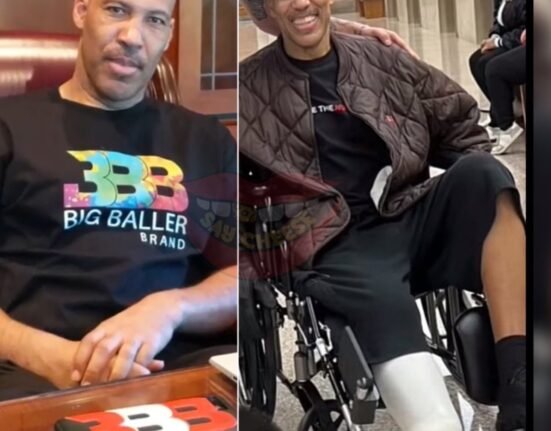Introduction to Scuba Diving Careers
Scuba diving careers present an exciting and unique pathway for individuals who are passionate about the underwater world. The industry offers a versatile range of roles, catering to various interests and skill sets. Key positions within scuba diving careers include instructors, divemasters, and commercial divers, each playing a vital role in the diving ecosystem.
Scuba diving instructors are responsible for training and certifying new divers, ensuring they are equipped with the necessary skills and safety knowledge to explore the underwater environment. This position not only requires a deep understanding of diving techniques but also effective communication skills to convey complex information to students. Instructors facilitate engaging learning experiences while fostering a love for diving.
Divemasters serve as essential support for instructors and divers alike, guiding underwater excursions and ensuring the safety and enjoyment of all participants. This role often serves as a stepping stone toward becoming an instructor, while also allowing individuals to immerse themselves in diverse marine ecosystems and encounter unique marine life. The camaraderie developed among divers in these positions enhances the overall enjoyment of the diving experience.
Commercial divers, on the other hand, undertake specialized tasks such as underwater construction, welding, or research activities, often working in various sectors, including shipping, oil, and environmental conservation. This segment of scuba diving careers demands a high level of technical skill and physical fitness, opening doors to lucrative employment opportunities in diverse industries.
The allure of scuba diving careers extends beyond the professional realm; the opportunity to consistently explore breathtaking underwater habitats and engage with marine biodiversity is unrivaled. Whether it’s teaching others the joys of diving or embarking on commercial ventures, these roles allow individuals to share their passion and contribute to conservation efforts, making a meaningful impact on both their careers and the environment.

Self-Assessment: Are You Ready for Diving?
Before embarking on a career in diving, it is essential to conduct a thorough self-assessment to determine if you are well-prepared and suited for this exhilarating pursuit. This process involves evaluating various aspects of your personal interests, experiences, and required skills. The following questions and checklist will help guide your introspection and readiness for a diving position.
Firstly, consider your personal interests. Do you have a passion for nature and marine life? Engaging with the underwater world demands a genuine enthusiasm for exploration and curiosity about aquatic ecosystems. If these elements resonate with you, it may indicate a strong foundation for your diving ambitions. Reflect on your previous experiences in water-related activities such as swimming, snorkeling, or other water sports. These experiences can enhance your comfort and confidence in aquatic environments, crucial components for diving.
Moreover, assess your physical fitness level. Diving can be physically demanding, requiring a certain degree of stamina and strength to navigate underwater. It is advisable to have a moderate level of fitness; thus, evaluating your overall health and physical condition is critical. Are you capable of swimming long distances? Are you comfortable with deep water? Your answers will help you identify any areas that may need improvement.
Lastly, consider the skills needed for diving. Basic skills include mastering buoyancy control, effective communication with dive buddies, and understanding dive equipment. If you lack experience in these areas, you may want to undertake refresher courses or enroll in a diving training program. By systematically addressing these considerations, you will have a clearer understanding of your readiness to pursue a diving position. Conducting this self-assessment is not only beneficial, but it sets the stage for a successful and enjoyable diving experience.
Essential Skills for Diving Professionals
To thrive in a diving position, a range of essential skills are required, blending both technical expertise and interpersonal abilities. Technical skills form the backbone of safe and effective diving practices. Buoyancy control is among the most critical of these skills, allowing divers to effortlessly navigate underwater environments while maintaining safety. Mastery of buoyancy ensures divers can explore without disturbing marine ecosystems, which is vital for environmental sustainability.
Emergency response skills are equally important in the diving profession. Divers must be prepared to handle a variety of challenging scenarios, ranging from equipment malfunctions to sudden medical emergencies. Proficiency in first aid and rescue techniques can make a significant difference in high-stress situations. Being able to identify, assess, and react appropriately to potential hazards is essential for diver safety and for the safety of others involved.
However, possessing technical skills alone is not enough for a successful career in diving. Soft skills are equally important. Strong communication abilities ensure divers can effectively convey messages and collaborate with team members during dives. Clear communication can prevent misunderstandings that might result in dangerous situations, enhancing overall safety during operations. Leadership skills play a crucial role as well, particularly for those aspiring to advancement in their careers. Leaders must inspire confidence and maintain morale while ensuring that all team members adhere to safety protocols.
Additionally, problem-solving capabilities are vital. Divers often encounter unexpected challenges below the surface, and the ability to think critically can lead to effective and safe resolutions. In conclusion, the synthesis of both technical skills such as buoyancy control and emergency preparedness, alongside soft skills like communication and leadership, is essential for success in the diving industry. Together, they create a well-rounded diving professional capable of thriving in various situations.
Physical Fitness Requirements
Engaging in scuba diving is as much about mental preparation as it is about physical fitness. Achieving the requisite physical conditioning is essential for ensuring safety and enhancing the overall diving experience. Aspiring divers must meet specific fitness levels that encompass endurance, strength, and flexibility, all of which play crucial roles in underwater activities.
Endurance is vital for scuba divers, as it affects their ability to manage extended periods underwater. Maintaining cardiovascular fitness through activities such as swimming, cycling, or running can significantly enhance stamina. Ideally, divers should aim for at least 30 minutes of moderate aerobic exercise, four to five times a week. This foundational fitness will help divers tolerate the rigors of diving, especially during long excursions or challenging conditions.
In addition to endurance, strength training is fundamental for divers as it contributes to better control while managing equipment and swimming against currents. Resistance exercises targeting core muscles, arm strength, and leg power are particularly beneficial. Exercises like squats, lunges, and push-ups can help build the necessary strength. Incorporating activities such as weightlifting or resistance band training into a fitness routine will further enhance a diver’s physical capabilities.
Flexibility is another vital component of physical fitness that ensures divers can maneuver efficiently underwater. Engaging in stretching exercises or practicing yoga can improve flexibility, allowing divers to access their gear comfortably and navigate tight spaces effortlessly. Establishing a regular regimen to incorporate stretching before and after workouts can boost overall flexibility and minimize the risk of injuries during diving adventures.
In conclusion, a focused physical training program that emphasizes endurance, strength, and flexibility is essential for all aspiring divers. By adopting a balanced approach to fitness, individuals can enhance their enjoyment and safety while exploring the underwater world.
Mental Readiness and Adaptability
Mental readiness is a crucial aspect when considering a sea diving position. The underwater environment poses unique challenges that require not only physical competence but also psychological preparedness. Divers must cultivate mental resilience to manage stress effectively and maintain composure in potentially high-pressure situations. Stressors, whether they arise from equipment malfunction, unpredictable marine conditions, or physical limitations, can significantly impact a diver’s performance and safety.
Adaptability is key in such dynamic environments. Each dive presents different circumstances, including varying visibility, temperature, and marine life interactions. Divers must be able to adjust their strategies and approaches quickly to respond to these changes. This flexibility not only enhances safety but also enriches the diving experience, allowing individuals to engage fully with the underwater world while navigating challenges confidently.
Situational awareness is equally important for divers. Being attuned to the surroundings helps in anticipating potential hazards. Divers should develop the ability to observe and interpret underwater signals, such as the behavior of marine life or changes in current, which could indicate a shift in conditions. This acute awareness contributes to making informed decisions, which are essential for ensuring safety during a dive.
To build mental resilience, divers can practice several techniques. Mindfulness and relaxation exercises can help in managing anxiety levels before and during dives. Visualization techniques, where divers mentally rehearse their dives and imagine successfully overcoming challenges, can enhance confidence. Engaging in regular training simulations can also prepare divers to face unpredictable scenarios with composure.
In conclusion, developing mental readiness and adaptability is imperative for anyone seeking a position in sea diving. By enhancing their mental faculties, divers can navigate underwater challenges more effectively, ensuring not only their safety but also a more rewarding diving experience.
Certification Pathways for Diver Roles
Embarking on a career in diving necessitates a clear understanding of the certification pathways available to aspiring divers. These certifications not only provide essential skills but also enhance employability in various diving roles. Various recognized agencies offer structured training programs that cater to beginners and advanced divers alike. The most prominent among these agencies are PADI (Professional Association of Diving Instructors), SSI (Scuba Schools International), and NAUI (National Association of Underwater Instructors). Understanding the distinctions among these agencies can aid individuals in selecting the training program that aligns best with their aspirations.
The journey typically begins with obtaining an entry-level certification, such as the Open Water Diver course. This foundational course equips novices with fundamental skills and safety measures required for safe diving. Upon completion, divers may pursue advanced courses like the Advanced Open Water Diver certification, which allows them to enhance their skills in specific areas such as navigation or night diving. Further specialization can be achieved through certifications like the Rescue Diver course, which teaches essential rescue techniques and emergency management, and is crucial for divers aiming to work in more demanding environments.
For those looking to take their career further, instructor courses provide an excellent avenue to not only deepen underwater skills but also learn how to educate others in the art of diving. As an instructor, divers can engage in teaching new students, thereby shaping the future of diving and ensuring safety protocols are passed on. It is essential for aspiring divers to research and select a training agency that offers courses recognized by the diving community worldwide, thus ensuring their qualifications are well-respected and provide a competitive advantage in the job market.
What to Expect in a Diving Position
Engaging in a diving position offers a unique blend of adventure and responsibility, as divers find themselves immersed in various aquatic environments. Depending on the specific role, such as a dive instructor, marine researcher, or underwater tour guide, daily activities can vary significantly. Dive instructors often work in tropical locales, leading students through training programs that emphasize safety and skill development. These sessions typically occur in warm, clear waters, providing an ideal setting for new divers.
In contrast, marine researchers frequently undertake missions in diverse environments, including coral reefs, shipwrecks, and deeper oceanic areas, collecting valuable data needed for scientific analysis. This work might involve monitoring fish populations, conducting habitat assessments, or studying ecosystem dynamics, all of which necessitate rigorous training and attention to detail. Additionally, underwater photographers might specialize in capturing the beauty of marine life, requiring them to be highly skilled in both diving techniques and photographic expertise.
Regardless of the role, dive professionals must navigate a number of challenges. For instance, adverse weather conditions, strong currents, or low visibility can complicate dive operations. Furthermore, maintaining safety protocols is paramount, as risks associated with decompression sickness and other diving-related incidents necessitate thorough preparation and knowledge of emergency procedures. Adaptability is essential, as divers may need to adjust their plans based on environmental factors or unexpected situations that arise during their work.
Overall, a career in diving offers the opportunity to explore breathtaking underwater landscapes while contributing to marine education, research, or conservation efforts. Individuals considering a diving position should be physically fit, possess excellent problem-solving skills, and foster a genuine enthusiasm for the ocean to thrive in this challenging yet rewarding field.
Lifelong Learning and Career Advancement
Lifelong learning is a fundamental aspect of career advancement, particularly in the diving profession. The underwater environment is dynamic and constantly evolving, requiring divers to stay informed about the latest techniques, technologies, and safety protocols. Continuous education ensures divers remain competent and competitive in a growing field. Divers who actively seek out professional development opportunities are better positioned to excel in their careers and adapt to changes within the industry.
One effective way for divers to enhance their expertise is by pursuing advanced certifications. Various organizations and agencies offer specialized training programs, which allow divers to gain knowledge in specific areas such as deep-sea diving, underwater photography, and marine conservation. These certifications not only signify a commitment to personal growth but also enhance employability, as employers often prioritize candidates who possess a diverse skill set and a robust understanding of underwater procedures. By advancing their qualifications, divers increase their chances of securing higher-paying positions and unique opportunities within the field.
Networking is another critical component of career advancement in the diving community. Engaging with other professionals through workshops, conferences, and local diving clubs fosters connections that can lead to potential job opportunities and collaborations. Being part of a community allows divers to share experiences, learn from one another, and gain insight into industry trends. Moreover, seasoned divers and veterans can offer mentorship and guidance, further enriching the learning journey for those new to the profession.
In summary, embracing lifelong learning is crucial for divers looking to enhance their careers. By pursuing advanced certifications and cultivating professional relationships within the diving community, divers can ensure they remain competent and well-prepared for the challenges of the ever-evolving underwater landscape.
Conclusion: Taking the Leap into Diving
As we arrive at the conclusion of our exploration into the preparations for a sea diving position, it is crucial to reflect on the key takeaways that can propel individuals toward a fulfilling career in scuba diving. Engaging in underwater exploration offers not only the thrill of adventure but also a chance to appreciate the marine environment and contribute positively to its conservation.
One of the primary considerations for aspiring divers is the importance of proper training and certification. Enrolling in recognized scuba diving courses equips candidates with essential skills and knowledge that enhance safety and effectiveness in underwater activities. From understanding dive physics to mastering the use of diving equipment, a solid educational foundation empowers individuals to navigate the aquatic world competently.
Additionally, cultivating physical fitness and mental preparedness is vital for those looking to thrive in a diving career. Regular physical workouts improve stamina and strength, which are beneficial when maneuvering through challenging underwater terrains. Moreover, developing mental resilience aids divers in managing potential stressors, whether they arise from unpredictable conditions or encounters with marine life.
Moreover, networking within the diving community can provide indispensable opportunities. Engaging with experienced divers, instructors, and diving organizations can yield insights and potential job openings, paving the way for new ventures. Utilizing social media platforms or local diving clubs allows individuals to build connections that may lead to promising prospects in the field.
Ultimately, taking the leap into a sea diving position requires both introspection and proactive steps. By reflecting on personal aspirations, continuing preparation, and embracing opportunities to engage with the diving community, aspiring divers can embark on a rewarding journey. The depths of the ocean await those who are ready to dive in.a type specimen book. It has survived not only five centuries, but also the leap into electronics are o nic typesetting, remaining essentially unchanged.













Leave feedback about this